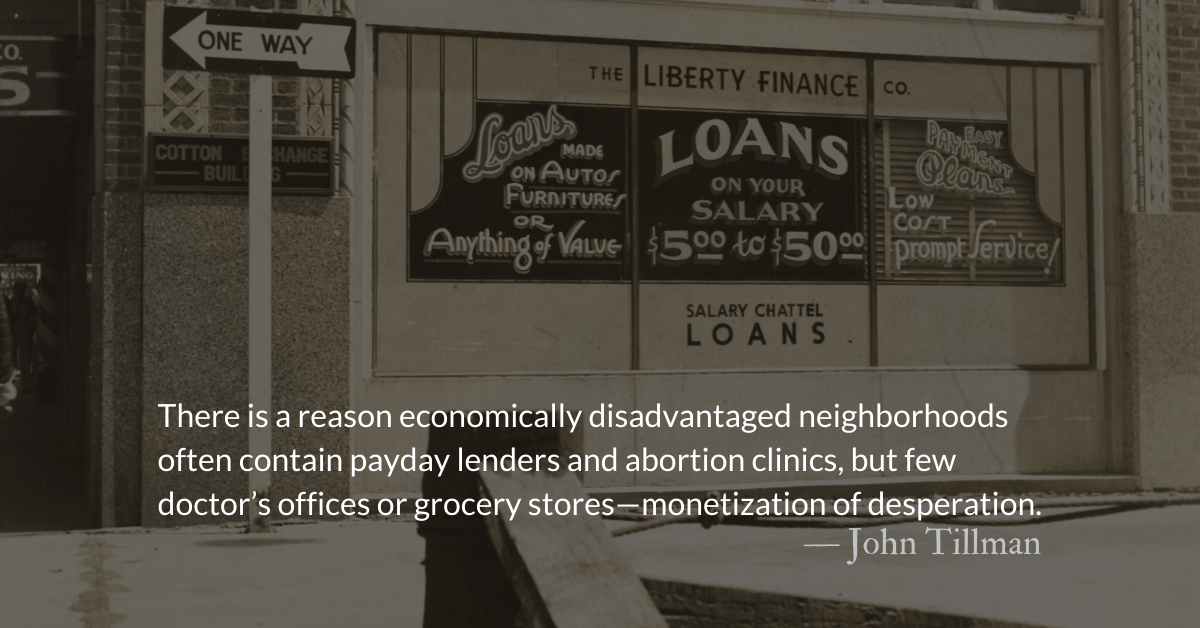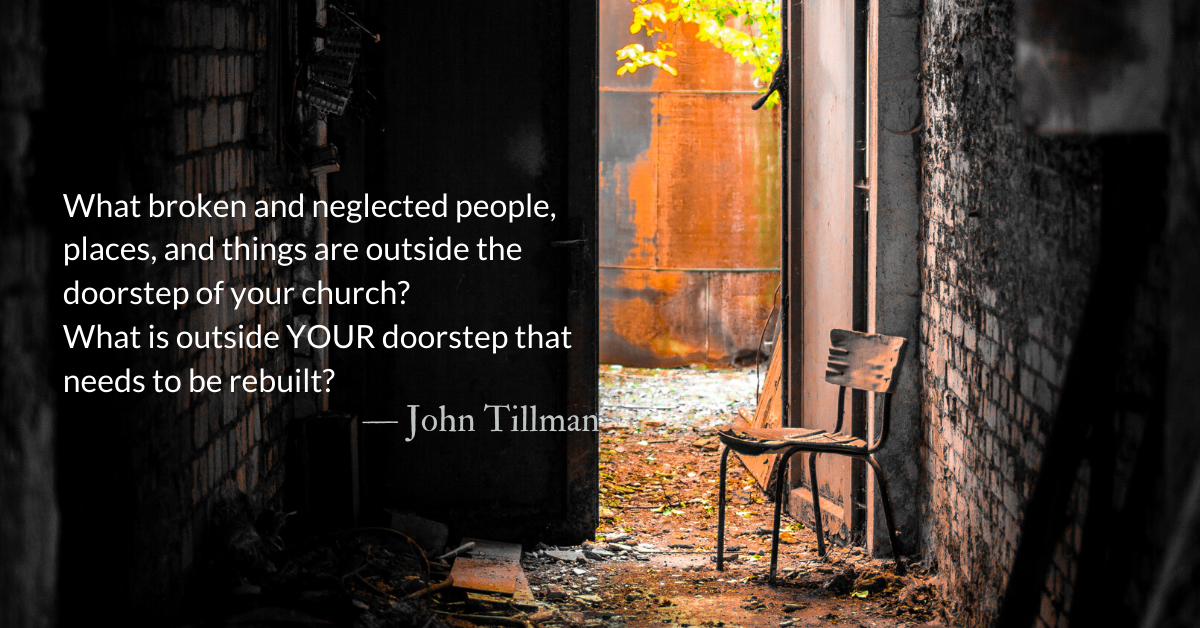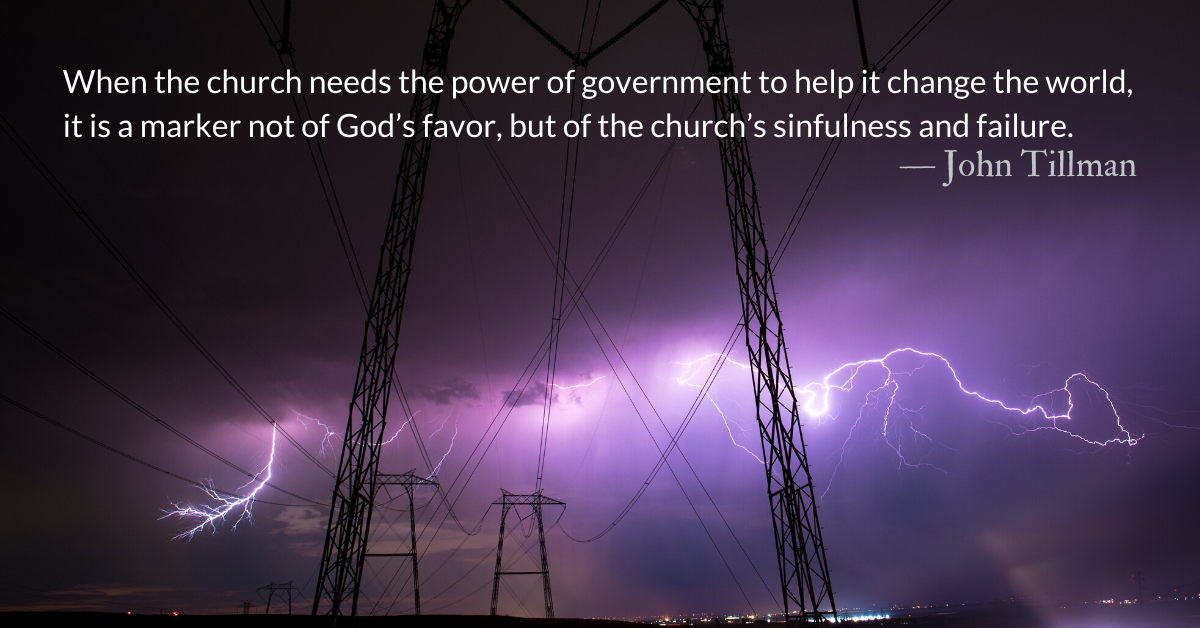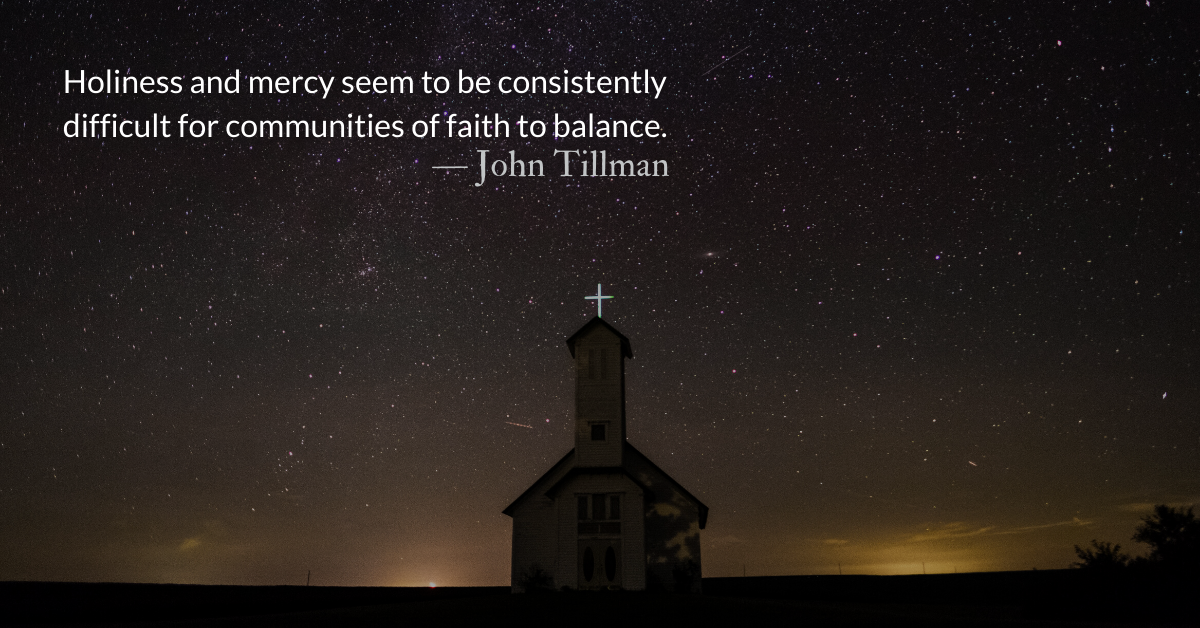Scripture Focus: Scripture: Nehemiah 5.9, 13
So I continued, “What you are doing is not right. Shouldn’t you walk in the fear of our God to avoid the reproach of our Gentile enemies?…I also shook out the folds of my robe and said, “In this way may God shake out of their house and possessions anyone who does not keep this promise. So may such a person be shaken out and emptied!”
Reflection: Taking Advantage of the Desperate
By John Tillman
There is a reason economically disadvantaged neighborhoods often contain payday lenders and abortion clinics, but few doctor’s offices or grocery stores—monetization of desperation.
From a business perspective, the noblemen confronted by Nehemiah were simply following the market. Payday lenders would describe it as filling a “financial service void.” As lien-holders, the noblemen could have denied responsibility. As long as customers make loan payments, who cares how they get the money? If they can’t pay, it’s their problem.
But as fellow humans, as children of God, Nehemiah challenged the rich to see their actions as directly causing the continuing, systematic enslavement of their brothers and sisters. Systemic poverty was literally tearing families apart.
The economic system these families were trapped in was socially acceptable, market-based, and entirely legal. What Nehemiah challenged the noblemen to do was economically nonsensical, entirely compassionate, and was an investment in the community.
It would be easy for us to dismiss this scripture in Nehemiah as being about the evils of big business, or payday lenders, or “Capitalism.” We are much more comfortable pointing fingers at faceless entities or ideologies. But if we reflect long enough, there are many ways this comes home to us. The undocumented workers who make our groceries cheaper. The millions of workers who must work two jobs—being separated from family—to make one income.
How are our socially acceptable, market-based, and entirely legal interactions with humans dehumanizing them? How can we compassionately invest in our communities, relieving some of the financial pressure that those around us experience and short-circuiting systems rigged to extract as much money as possible from the pain of marginalized brothers and sisters?
As the church, we can be difference-makers, rebuilding the broken in our society. To do this, we must engage in economically nonsensical, entirely compassionate, community investment. Let us pray for churches, political leaders, and ourselves to innovate in this space—to create ways to lighten the burden of the oppressed and to set free the captives.
Divine Hours Prayer: A Reading
Jesus taught us saying: “Do not worry; do not say, ‘What are we to eat? What are we to drink? What are we to wear?’ It is the gentiles who set their hearts on all these things. Your heavenly Father knows you need them all. Set your hearts on his kingdom first, and on God’s saving justice, and all these other things will be given you as well.” — Matthew 6.31-33
– From The Divine Hours: Prayers for Autumn and Wintertime by Phyllis Tickle.
Today’s Readings
Nehemiah 5 (Listen -3:29)
Acts 15 (Listen -5:43)
Read more about In Denial about Injustice
The sins that brought God’s judgment and caused the exile of Israel were multi-faceted. But there is a common thread—injustice.
Read more about The Identical Nature of Greed and Lust
Paul uses the word “command” when speaking to the rich about their responsibility to be humble and generous. It is the same level of authoritative language he uses to speak of sexual sins.











